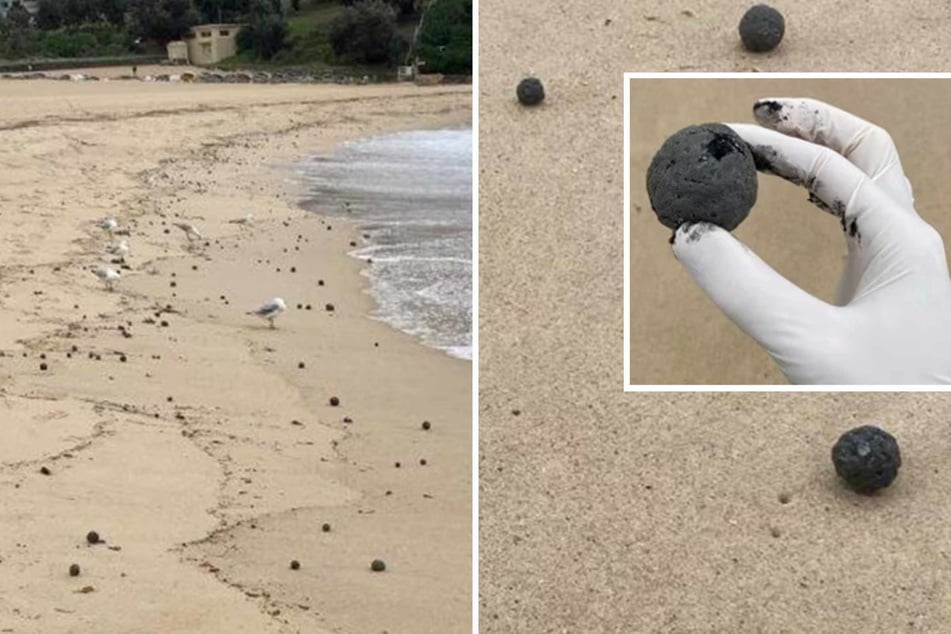Hundreds of "mysterious black balls" wash ashore on popular Sydney beach
Sydney, Australia - Hundreds of mysterious black tar-like balls have washed up on a popular Sydney beach, prompting lifeguards to close the strand to swimmers.

"Mysterious, black, ball-shaped debris" began appearing on Coogee Beach on Tuesday afternoon the local mayor said, leaving flummoxed authorities scrambling to find out what they might be, and where they may have come from.
"Coogee Beach is closed until further notice," Mayor Dylan Parker said in a social media post.
Hundreds of spheres ranging from the size of golf balls to that of baseballs could be seen littering the length of sand, which is usually thronged with Sydneysiders and tourists.
Instead, a few seagulls wandered among the spheres, pecking and examining.
"At this stage, it is unknown what the material is, however, they may be 'tar balls' which are formed when oil comes in to contact with debris and water, typically the result of oil spills or seepage," Parker said.
The beach remained closed Wednesday morning despite an overnight cleanup effort.
Other nearby beaches were being monitored but remain open.
"Beachgoers are advised to avoid Coogee Beach until further notice and not touch the material, while the clean-up and investigations continue," Dylan Parker said.
UPDATE, October 18, 7 PM ET: Mystery globules on Sydney beach identified as "tar balls"
Chemical testing has identified the mysterious black globules washing ashore on a popular Sydney beach as petroleum-based "tar balls," local officials have said.
Tests showed the material was a "hydrocarbon-based pollutant" consistent with the "phenomena known as 'tar balls,'" the Randwick City Council said Wednesday evening.
Tar balls form when slicks of spilled oil are battered by wind and waves, mixing to form a sticky seawater emulsion that eventually breaks into smaller pieces or "balls."
It was still not known where the tar balls came from, council officials said.
Cover photo: Randwick City Council
